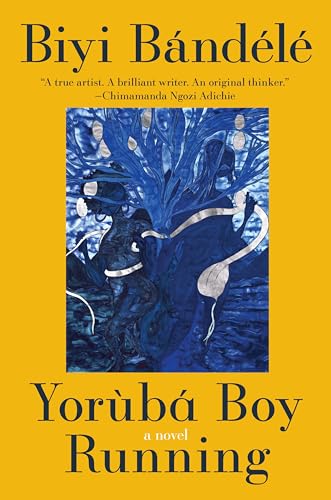Yoruba Boy Running
Essentially, this is the story of Samuel Àjàyí Crowther, the first African Bishop in West Africa, but it doesn’t follow any traditional route for biographical historical fiction. Its complexities require close attention by the reader.
In 1821, Àjàyí is thirteen, living a normal life in Òsogùn, when Malian slave-traders storm into his village and carry him and his family off to the barracoons on Eko Island (Lagos) to await shipment to Brazil. Rescued by the Royal Navy, he is set free and returned to Sierra Leone. Àjàyí’s intelligence and language facility come to the attention of missionaries, and he embarks on an astonishing career in the church, meeting Queen Victoria and being ordained as Bishop.
This is not just a magnificent saga of one man’s triumph over adversity, it is also an exploration of West African history; of a greedy, rapacious king and his cronies who collude with Europeans in selling their own people and another king who falls victim to gunboat diplomacy. Late in life, Àjàyí himself is targeted by an increasingly bigoted church.
Yet there are so many more layers to this remarkable and original novel with its farce, wit, and lyrical perception of humanity:
“… Banter was considered serious business. Every child knew, from mother’s milk, that what comes after six is more than seven; that a judicious whisper speaks louder than ten big drums. Outsiders often would key into an exuberant exchange, unaware that it was less than half the story, that the meaning of the exchange was complete only when taken together with the other, entirely unspoken, conversation going on beneath the fireworks … the tonal peculiarity of the language was another minefield: the same word could mean utter chaos … or it could mean the exact opposite, complete tranquillity.”










